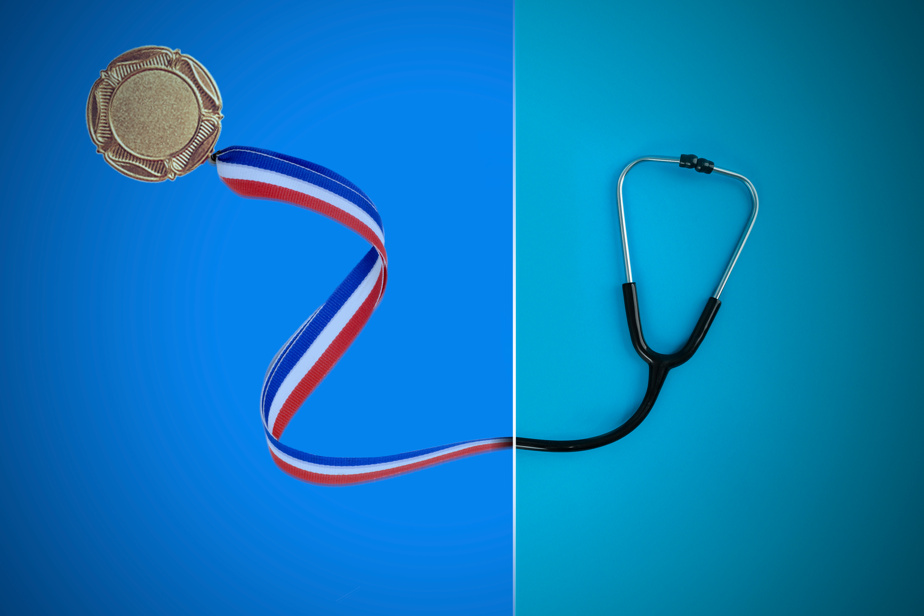Those who have fond memories of a heroic Joannie Rochette, on the ice of the Pacific Coliseum at the Vancouver Olympic Games, may be surprised to learn that she is now a doctor specializing in anesthesia. Those who know her a little, however, know that the young woman is one of those who can take on any challenge.
“Figure skating and medicine are two demanding fields, it’s true, but I have always been very competitive,” she recalls. I’m an only child and I’ve been used to being pushed. At school, when I came back with a 95%, my mother asked me where I had lost the 5%!
“I always loved studying and when I was young, I was already thinking about studying medicine. But my sports career took up a lot of space, often with trips lasting several weeks during the school year. And sports-studies programs limited the choices of fields of study. Even though I had sufficient grades in CEGEP, I had to give up on medicine, something that I found really unfair. »
Sport therefore took up all the space for several years. Six-time Canadian champion, silver medalist at the 2009 Worlds, Rochette concluded her career in spectacular fashion by obtaining the bronze medal at the 2010 Games in Vancouver, just two days after the sudden death of her mother Thérèse.
“Athletes are not always well prepared for retirement; it is often a period of doubt and questioning,” emphasizes Rochette. And even though I love figure skating, I didn’t see myself becoming a coach. It’s really not my personality. On the other hand, I still had a taste for challenge, for surpassing myself, I was still young and I was thinking about a career for the rest of my life. »
Armed with the qualities that made her a champion, accustomed to the rigor of training, disciplined by nature, Rochette found a profession that corresponds to her temperament, away from the cameras and the spotlight this time.
Admitted to McGill University in 2015, she received her diploma in 2020, just a few days before being involved on the front lines, in a CHSLD, during the COVID-19 crisis that spring. She then began her five-year residency in anesthesia in a Montreal hospital.
“It’s something completely different from sport,” she explains. It’s very cerebral and you really always have to be perfectly focused. It also requires great rigor, a lot of precision, which I really like. »
Proud of her journey, Joannie Rochette hopes to inspire other young athletes to achieve their professional dreams. “Sport develops our resilience, the ability to get back up when we have more difficult days,” she explains. It’s sometimes complicated to combine studies with all that, but I think it’s important to do it, to persevere when it’s more difficult. You have to take it one day at a time, even if it means catching up if necessary. »
The doctor also believes that school programs could be better adapted to the reality of student-athletes in order to facilitate certain transitions at the end of their sporting career.
And so much the better if, in the end, even more athletes become doctors!
